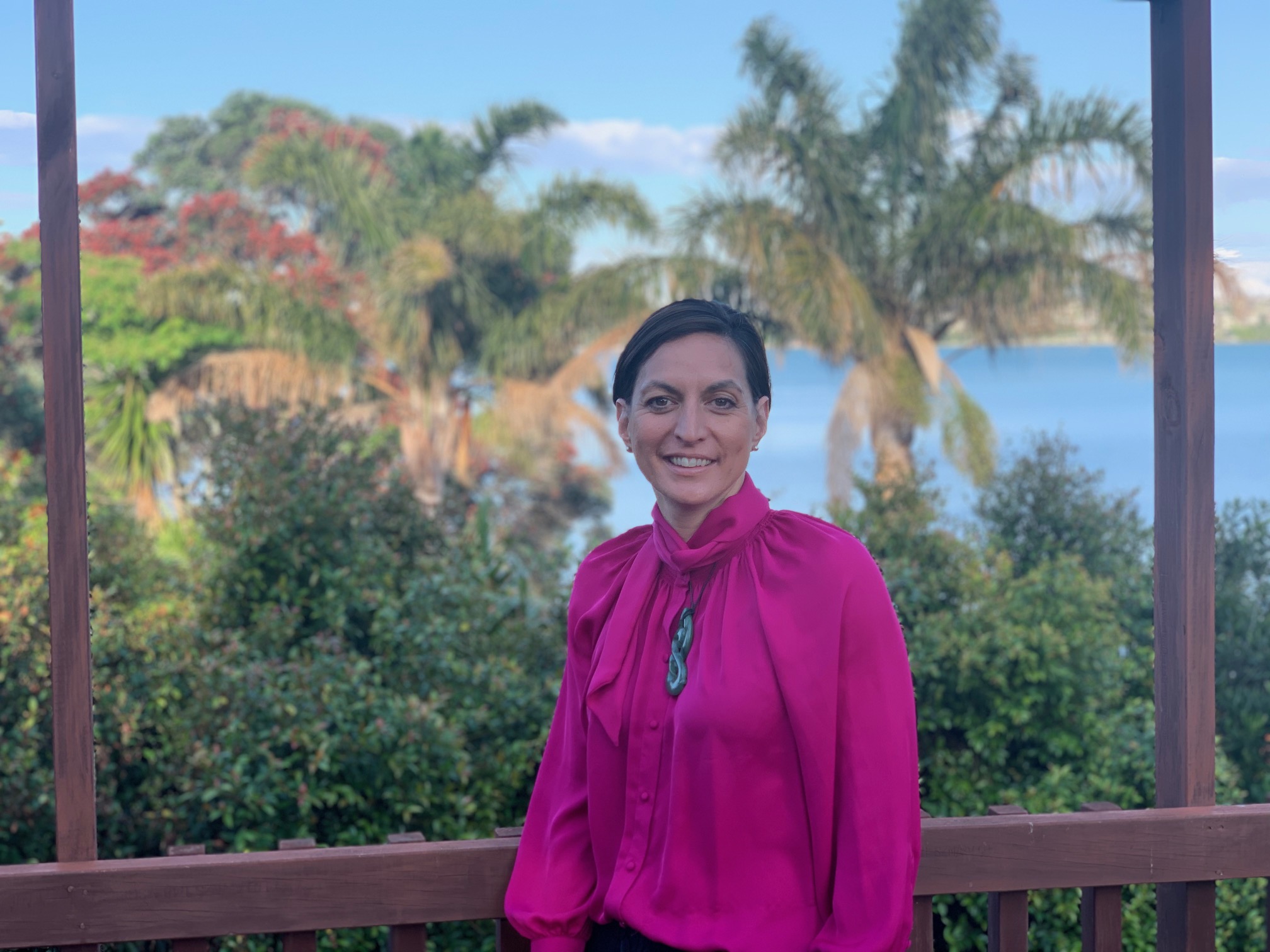
4 minute read
Interview with Megan Tapsell (ANZ Bank)
I te taha o tōku papa .Mai Ngā Kuri o Whārei o Tihirau. Mai Maketū ki Tongariro. I te taha o tōku mama. Ko Tararua te maunga. Ko Ngāti Raukawa. ki te tonga te Iwi. I tipu ai ahau i Maketū.
What do you think Māori digital entrepreneurship is compared to traditional conceptions of digital entrepreneurship?
Megan summarises Māori digital technology as applications and software designed by Māori or accessed by Māori, ‘those who are doing all the thinking and the innovation around those designs that are applied and used by our people.’
How can we integrate Māori values and customs into digital tech?
When Megan is working on design principles, she ensures there is a Te Ao Māori perspective at every level of software design and development. The simplest one is checking that an application can integrate Te Reo Māori such as accepting macrons, ‘because with our reo comes our history and identity.’ Megan’s company designs products from the bank’s perspective, so they need to ensure when designing a credit card product or a loans product that they are starting with the fact a Māori will be a user of this product and include their worldview. She ensures they are coding from a Te Ao Māori perspective, inputting core principles including kaitiakitanga and manaakitanga into design. Decisions are made in terms of impact on the environment and long-term sustainability, questioning, ‘are we coding it for today or are we guiding it for the future? Furthermore, how will the physical assets be disposed of? When we apply kaitiakitanga to that, what are we doing with our physical assets at the end of it?” Recycling and regeneration and sustainability are paramount.
If you’re not doing that with kaitiakitanga in mind, then you’re not doing it.
Do you think integrating values offers Māori an advantage on the world stage and that other indigenous organisations could follow this initiative?
Megan has seen various industries in New Zealand, including digital technology, become more aware of indigenous thinking and a lot of organisations have applied a Te Ao Māori world view.
There’s this recognition that to play in Aotearoa you need to have that.
She says Māori technologists are in demand as organisations are aware that it’s to their advantage.
Māori technology talent is difficult to get so in order to retain it in these workplaces we need to make culturally safe places for Māori to come into.
What do you think about the Industry Transformation Plan?
According to Megan, ‘we just need to take our opportunity to influence it.’ While the Industry Transformation Plan is focusing on the right areas, she says there’s a whole lot more work that needs to underpin it and that is when the next level of detail should unfold.
How do we encourage rangatahi to get involved?
Megan says within ANZ, they are building a community proposition around working with some of the schools to encourage students to get involved in STEM subjects (science, technology, engineering and maths). She thinks science and technology is focused on so much within the ‘STEM piece,’ but considers technology as much broader than that.
She says the designers of their technology are not the traditional design technologists, but people who have come through art and media. She believes we need to be more open to encourage involvement and not pocket technology into certain fields, and that the problem with defining technology can be due to the employers.
What role do you think the Government, Iwi, the transformation plan, have on funding initiatives to increase participation of Māori digital technologists?
Megan strongly believes the Government has a role around needing to participate, protect and grow Māori involvement, particularly in regards to Te Tiriti principles. Technology is going to be the fastest growing sector so she says Iwi need to invest in technology in one way, shape or form.
We want to be party to that success and if we don’t get on and if we don’t start to understand and get onto that now we are going to miss the boat.
She says Iwi need to decide whether to invest in themselves, or potential successful technology businesses, or grow the skill sets within the Iwi.
I think we’ve hit a number of different targets around growing our local communities and access to technology, whether that’s down to an educational provider perspective or something different I’m not sure.
What do you think are the enablers of Māori starting their own enterprises in New Zealand?
In Megan’s opinion, having access to funds and having real world examples showing there is success and how they can be successful will help inspire more Māori. It has to start with being able to see what they could be and showing them how to do it.






